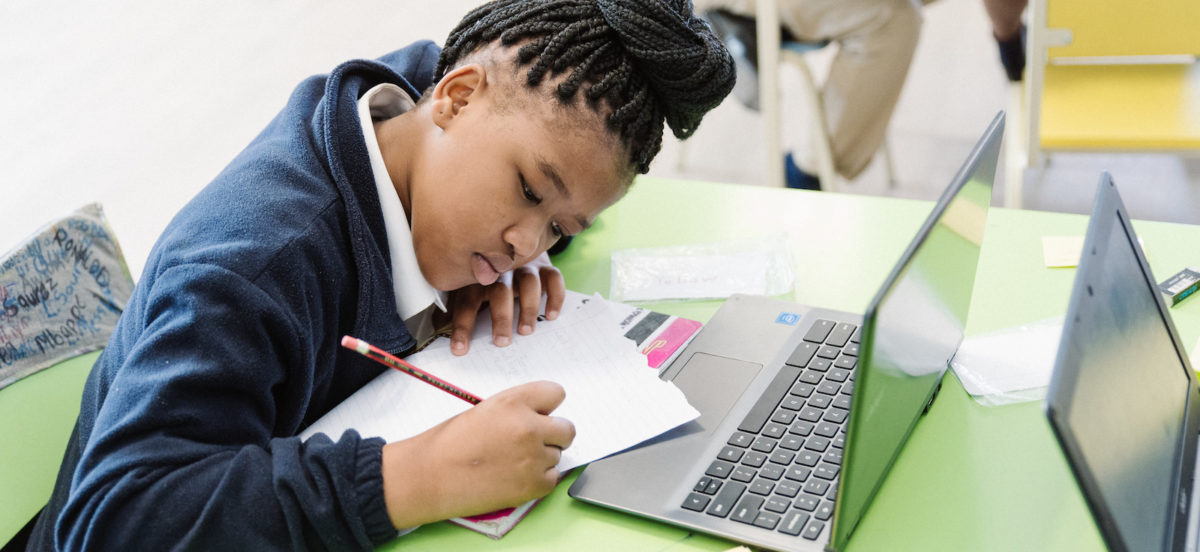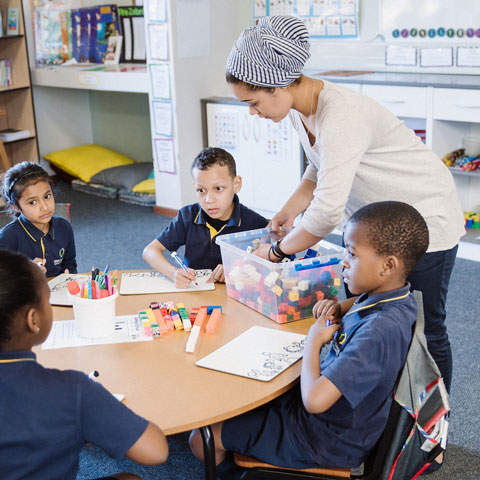Social Distance. Quarantine. Virtual Classroom. Fever Gun. Lockdown. Face Mask. Curfew. Zoom Meetings. These are all words that in the last month most educators have shifted from rarely using to being part of their daily vocabulary.
A french novelist Andre Gige once said, “Man cannot discover new oceans unless he has the courage to lose sight of the shore.” For most of us, in our new normal we are currently in the middle of the ocean with no shore in sight. This period is unprecedented, uncomfortable and uncertain and it is important to acknowledge that and allow ourselves the space to process it. March 2020 is a month where life on The Continent and throughout the world became forever changed. As a human race we are left to grieve life as we once knew it and are tasked with rebuilding our new normal. As educators we are tasked with not only doing this for ourselves and our families but also for our students.
What story will we tell the next generation about what we did to shape a better future for our students during this time?

The Socio-economic Gap
The impact of the Corona Virus is universal. This virus does not know nationality, nor tribe, nor race. Where it does differentiate is along lines of socio-economic difference. As an education community the onus rests with us to not leave children behind, to be their champions no matter of their status. The socio-economic gap in education has the ability to widen significantly as we build a virtual instructional world. These students are in more dire conditions than ever before. They are at risk of being left far behind their more affluent peers. Some students will take the world of online learning by storm and others remain at home with no access, struggling to have their basic needs met. I ask again, what story will we tell the next generation about what we did to shape a better future for them during this time?
We all have stories that illustrate this time for us – for me, a day I will never forget is March 17th, 2020. On this day, I had three different conversations, with educators on three different continents, all asking three different sets of questions about how we proceed forward for students:
- 8:00am EAT- Educator Group 1 – Have we ensured that all of our students have devices and data? Do any adjustments need to be made to the new online timetable? 85% of our students were present in all of their online classes today – how do we get to 100% tomorrow? How are we ensuring that our culture principles are still a part of our students daily life? How are we going to ensure that we are able to coach teachers in the zoom classrooms? How did online learning engagement go yesterday? What can we fix today?
- 12:00pm EAT- Educator Group 2 – I hear we are going on full lockdown soon- do our families have enough water and food to get through it? How do we raise funds to help? There are 13 kids in that home where there is only one room – what can we provide to keep them engaged and learning during this time? How do we ensure that they don’t fall behind? A packet will run out and where will the funds come from to keep printing them? How can we shift funds to make sure our kids at least have their basic needs met?
- 5:00pm EAT- Educator Group 3 – Why is everyone doing their own thing? Shouldn’t there be a stance for all kids in our country during this time? Aren’t we one nation? Some of our kids can get online and some can’t. Is it really fair for me to just keep teaching online knowing that others are falling behind? Isn’t this the definition of inequity?

Different Continent, Same Struggle
Three phone calls, from three different groups of educators on three different continents with three different struggles came to my phone. Different, yet similar in that all were rooted in the idea of what does this new world mean for our students. What does our support need to look like for them? What is doing right by them? The questions of equity versus equality on every call quickly bubbled to the surface.
I have been asked the question – ‘Is Africa far behind the rest of the world in education in this new world?’. The truth is not at all. On many occasions the innovations that I am seeing in certain schools on The Continent are far surpassing what I am seeing Stateside. In this new world order collectivism is proving to yield dividends in ways that individualism cannot.

How do we reduce the gap?
As we discover the new oceans that await us on the other side of Covid-19, we must ensure that our humanity rises to the forefront. We must not allow our children in the lowest socio-economic brackets from across the world to fall behind and widen the already wide learning gap.
As you continue to lose sight of the shore I challenge us to discover new and more equitable oceans in the process. I ask you one last time, what story will we tell the next generation about what we did to shape a better future for them during this time?

